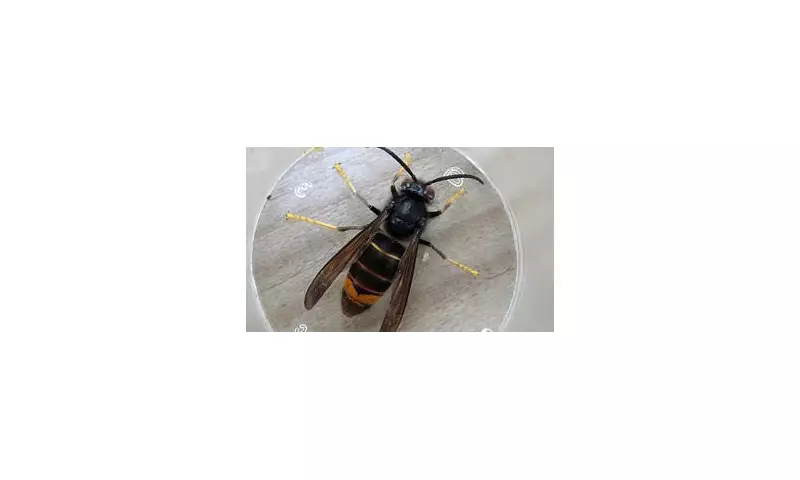
In a development that has sent shockwaves through environmental and agricultural circles, the first ever Asian hornet has been confirmed in Northern Ireland. The alarming discovery was made in a residential area of Belfast, marking a significant escalation in the UK's battle against the invasive species.
Emergency Response Activated
The Department of Agriculture, Environment and Rural Affairs has launched an immediate investigation following the confirmed sighting. Officials have deployed rapid response teams to track the insect's movements and locate any potential nests in the vicinity.
"This is exactly the scenario we've been preparing for," stated a senior DAERA official. "The public's vigilance is our first line of defence against establishing populations."
Why This Matters: The Threat Explained
Asian hornets pose a severe threat to Britain's ecosystem and agricultural economy for several critical reasons:
- Bee population devastation: A single hornet can consume up to 50 honeybees per day
- Biodiversity impact: They prey on native pollinators essential for crop production
- Economic consequences: Potential damage to fruit farming and agriculture worth millions
- Public health risk: Their stings can cause severe allergic reactions
Public Urged to Report Sightings Immediately
Authorities are urging residents across Northern Ireland and the wider UK to download the official Asian Hornet Watch app. The public should remain particularly vigilant around:
- Flower beds and gardens
- Orchards and fruit-growing areas
- Areas near water sources
- Outdoor eating spaces
"Early detection is absolutely crucial," emphasised a biodiversity expert. "If we can find and destroy nests before they establish, we stand a chance of preventing permanent colonisation."
The Wider UK Context
This Belfast discovery comes amid increasing Asian hornet activity across the British Isles. Multiple nests have been destroyed in Southern England this year, but the Northern Ireland sighting represents the furthest north the species has been detected.
The Department continues to monitor the situation closely, with increased surveillance at major ports and potential entry points. The public is reminded not to approach nests but to report sightings immediately through official channels.





